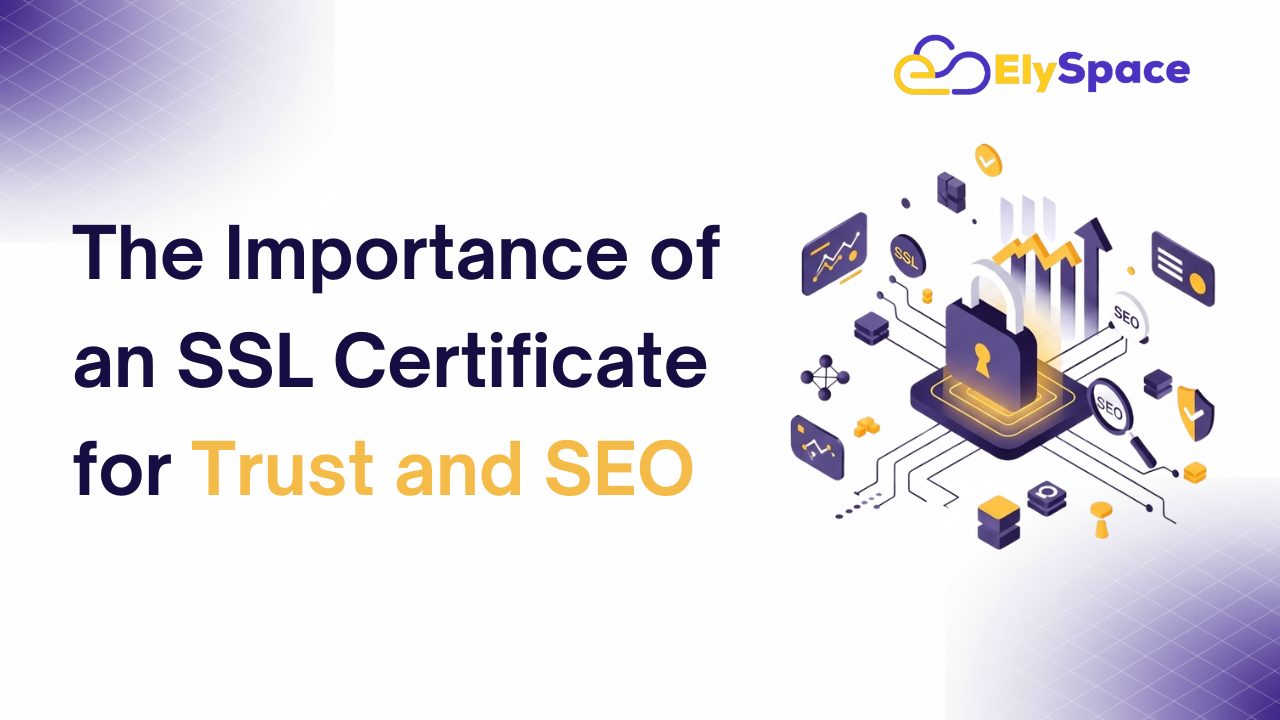An SSL certificate offers undeniable importance in our modern digital reality. Treat an SSL certificate as a specialized lock placed on a website’s virtual door. Just as locks on doors protect homes from unwanted guests, an SSL certificate wards off hackers trying to access sensitive information on your website.
We all know how access to various websites requires users to enter sensitive information, for eg, passwords, credit card information, or other personal details. An SSL certificate ensures that the information accessed remains confidential. Think of it like a secret code that your website shares with the visitor.
Understanding how SSL certificate works to ensure that websites are secure.
Just as a bodyguard keeps a watch and protects a celebrity or important figure, SSL certificates are like bodyguards for your website and protect it from unauthorized guests. When a visitor tries to access your website, an SSL certificate protects the site by forming a secure tunnel between the computer and the website. No amount of spying from bad actors will help them peek into the tunnel’s contents, as the tunnel will not reveal anything of value.
Here’s what happens when someone visits a website with an SSL certificate. First, the person’s browser requests the website to confirm its identity. An SSL certificate functions as an identification document confirming the authenticity of the website. After that, the browser and website come to an agreement on a unique secret key for their future communications.
Without an SSL certificate, any online threats could capture passwords, credit cards, or private messages with ease. The protection of an SSL certificate is like sending a letter is a sealed envelope as opposed to a postcard, where, in the latter, everyone could read what was written.
Step 1: Why Google Loves Websites with SSL Certificates
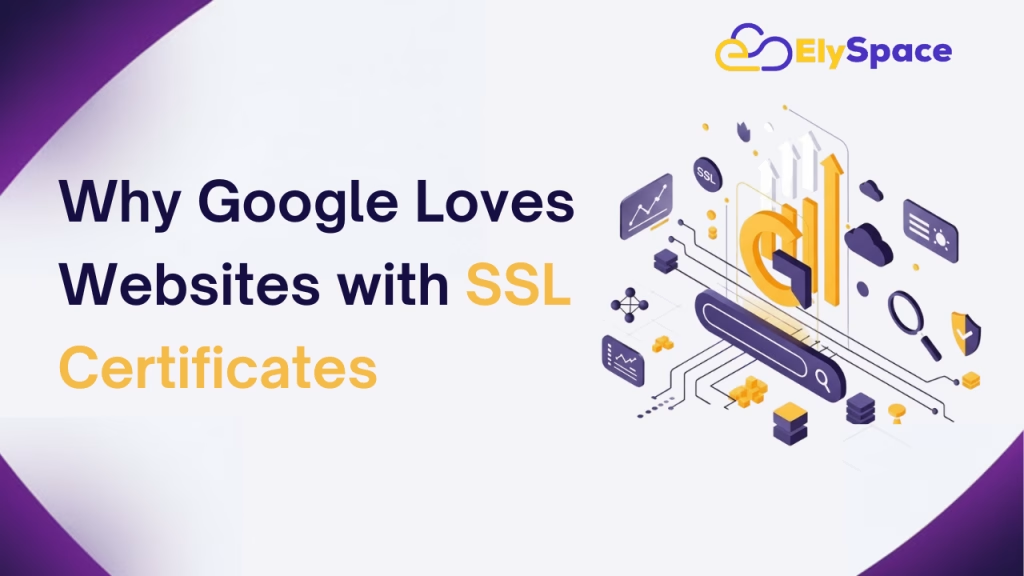
Google can be compared to a huge library which provides people with the links to the websites. A librarian seeks to give a student some trustworthy websites; in this case, Google seeks to give the safest website, and this is where the importance of an SSL certificate comes in, as websites which have SSL certificates enhance the company’s credibility and overall HTTPS site safety.
Google has always told website owners that SSL certificates boost a website’s rank in search results, just like in 2014. The same as a librarian who gives the rewarded students gold stars, Google also gives bonus points to websites which have SSL certificates and serve as ‘responsible’ websites. Websites that Google’s robots crawl through to decide which ones to show, SSL certificates websites, gain bonus points.
For the people who possess SSL certificates, Google makes it easier for people to find their websites as compared to people who possess SSL certificates, whom Google has made it harder to find their websites. In other words, to business owners, the monetary loss is devastating because an SSL certificate website can severely damage a business’s online visibility.
Step 2: Building Trust with Your Website Visitors

When it comes to sharing their personal details or making purchases, individuals prefer to have a sense of security. As an SSL certificate is obtained, a site owner can put a green lock on their site like a badge of honor to display, ‘You can interact with this site without feeling unsafe.’
People have been conditioned to check for this green lock icon, otherwise, many people will abandon the site altogether. Website owners will face the plight of losing potential business at no cost, simply because their website is not dressed for the occasion.
The value of SSL certificate in building trust does not end at the green lock. Users today can face potential website blockers on their browsers which display frightening warning signals to capture their attention. These pop-ups inform users the site in question is ‘unsafe’ asking ‘Do you want to proceed?’ most users will hit ‘go back,’ not wanting to increase the chances of any harm.
Step 3: Different Types of SSL Certificates and Which One You Need
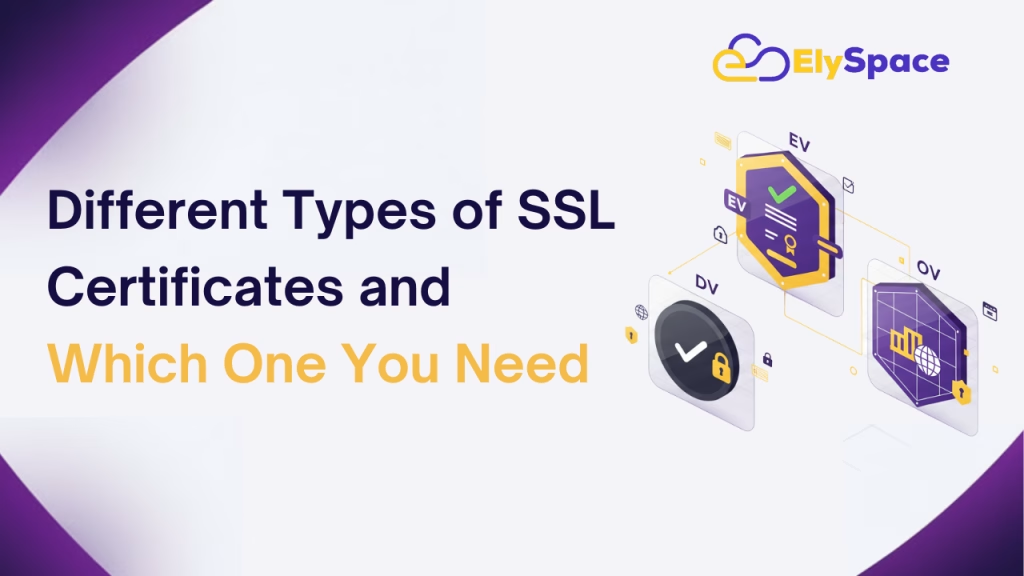
SSL Certificates have various types just as cars have different models. Some are basic and suitable for small websites, while others are extravagant and tailored for large companies that deal with a lot of delicate information.
Domain Validated certificates are suitable for the mid-sized companies that wish to display some extra credibility
In addition to the above, the Extended Validation (EV) certificates are the most complete and expensive. They perform thorough investigations to determine the native of your company. As a visitor to your company’s website, you are likely to see seloidated (DV) certificates. These are the easiest and most common certificates to obtain. They are best suited to small business sites, blogs and personal pages. They are effortlessly gotten as it only requires the domain owner to be automated. The domain owner’s certificate is awarded to them as soon as the authority is satisfied that the domain is actually owned, than the certificate is issued.
Organization Validated (OV) certificates is a tier of certificates that offer more trust signals than other certificates. The certificate authority makes sure that the business is legitimate prior to issuing your company’s name that is ribboned in the certificate. The company is able to garner substantial trust as the name of the business is bolded and showcases the maximum trust.
Step 4: How SSL Certificates Boost Your Website’s Search Rankings

To determine which websites rank highest in search results, google and other search engines analyze hundreds of data points. Over the years, the importance of the ranking factor SSL certificate has considerably increased. Google has officially stated that websites that have HTTPS (which is only possible with an SSL certificate) will positively rank on their search engine results pages.
When the quality and content of two different websites are fairly equal, the website that has an SSL certificate will, in most cases, rank higher than the other. This edge may be small but it can be the difference between a website that is frequently accessed vis a vis one that is rarely accessed.
SSL certificates are advantageous in multiple other important SEO ranking factors. Websites that have SSL certificates also load faster and provide an overall better user experience. When users feel their data is protected on a website, they tend to spend more time on the site and visit more pages. Google detects these good behaviors and in turn rewards the website with higher rankings.
Step 5: How to Get SSL Certificate for Your Website
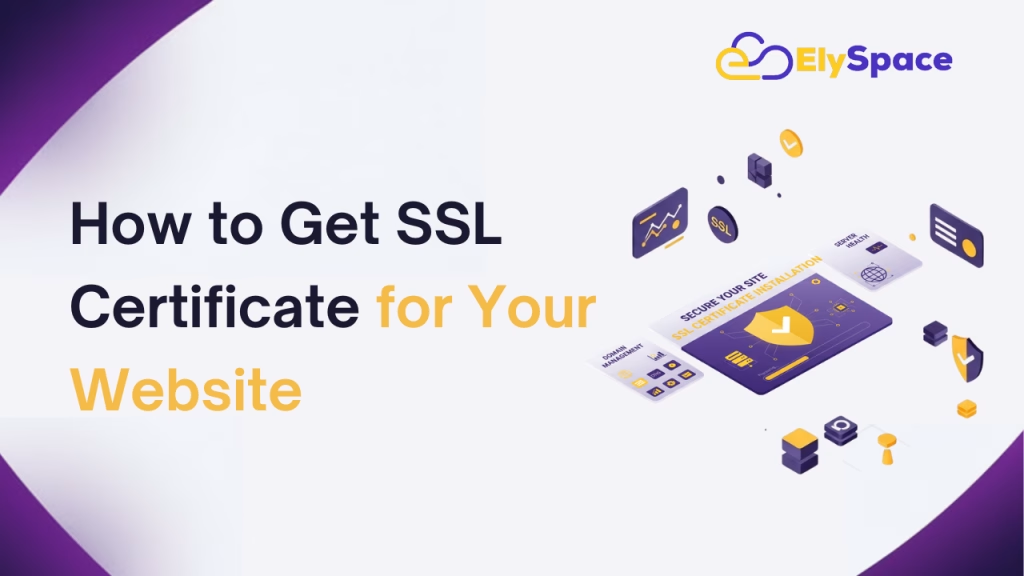
In the past getting an SSL certificate for your website was not easy. Currently many web host providers such as ElySpace include SSL certificates within their hosting plans so you mayn’t be aware of the fact that you already have access to SSL protection.
The web host company may manage any technical aspects of SSL installation but you will have to modify your website to replace the HTTP used to access the website with HTTPS. Typically you will have to either purchase or request an SSL certificate from a recognized certificate authority.
The certificates offered are as secure as their paid counterparts. However for the average business website the small cost of a paid SSL certificate plus the offered assistance is professional support you will need.
Step 6: Common SSL Certificate Mistakes That Hurt Your Website
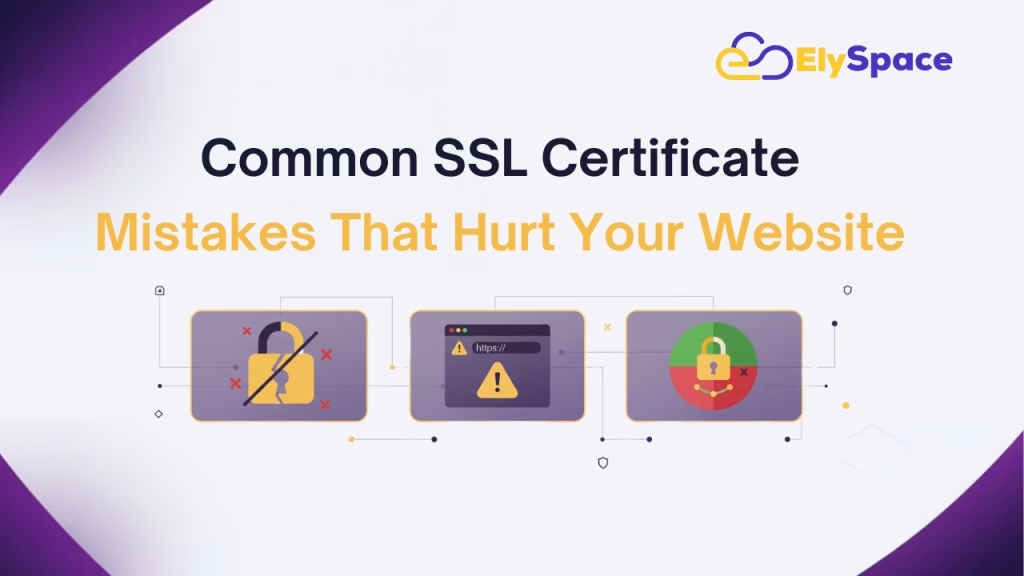
Each website owner has their own set of mistakes which leads to neglecting the full value of the SSL certificates. For instance, one issue that is quite pervasive is termed the ‘mixed content issue’: an issue where some components of a website still loads via HTTP as opposed to HTTPS. This leads to the generation of security warnings that send away the website’s users.
Additionally, the practice of SSL certificate renewing is quite alarming as it leads to some of the website’s most dangerous assets being showcased in a large, bloody, ominous facade. This is highly alarming issue as it compromises the credibility of the website and results in the potential nearby customers being redirected to the website’s nearby competitors.
Moreover, some owners have an SSL certificate solely for the reason of reveling in the security benefits that comes with it. Having SSL certificates does not, however, absolve one from the duty of formally completing the HTTP to HTTPS transformation process. This action results in an abundance of content that is highly unfavorable for the search engine’s performance aggravating the already poor position of the website’s SEO. The general value that comes with owning an SSL certificate is that it has to be properly set up to be activated.
Step 7: The Future of Website Security and SSL Requirements

Every site is moving towards SSL certificate integrations, even websites that do not deal with sensitive information. Major browsers are restricting web access without SSL certificates, and over time, these policies are expected to become even more stringent.
Google, alongside search engines has started focusing more on the security of the site as one of the factors for providing ranks. As search engines try to make the web safer, the importance of SSL certificate for SEO will only continue to increase.
Website owners that do not follow SSL certificate placements, risk falling behind. The website may not show up on search engines as much, and users are more likely to not access it due to security warnings. SSL certificate implementations are crucial for the success of the website.
Conclusion
An SSL certificate’s importance is more than just the basic level of security. These digital certificates enhances the security of your visitors, fosters brand loyalty and offers better positioning on search engines, and preempts the evolving security requirements.
An SSL certificate offers the protection that visitors to your website expect and that search engines reward, regardless of whether the site is a small blog or a large business website. As a result of SSL certificates being offered by web hosting companies such as ElySpace, there is no justification for leaving your website exposed to attacks.
So why wait and forgo the benefits that SSL certificates provide for your website? With these certificates, your site visitors are far secure, you achieve a better search engine ranking, and you get the comfort of knowing that your site is secure by current global standards. These benefits of having SSL protection, better SEO and reputation, coupled with peace of mind, far outweigh the costs of SSL protection.

